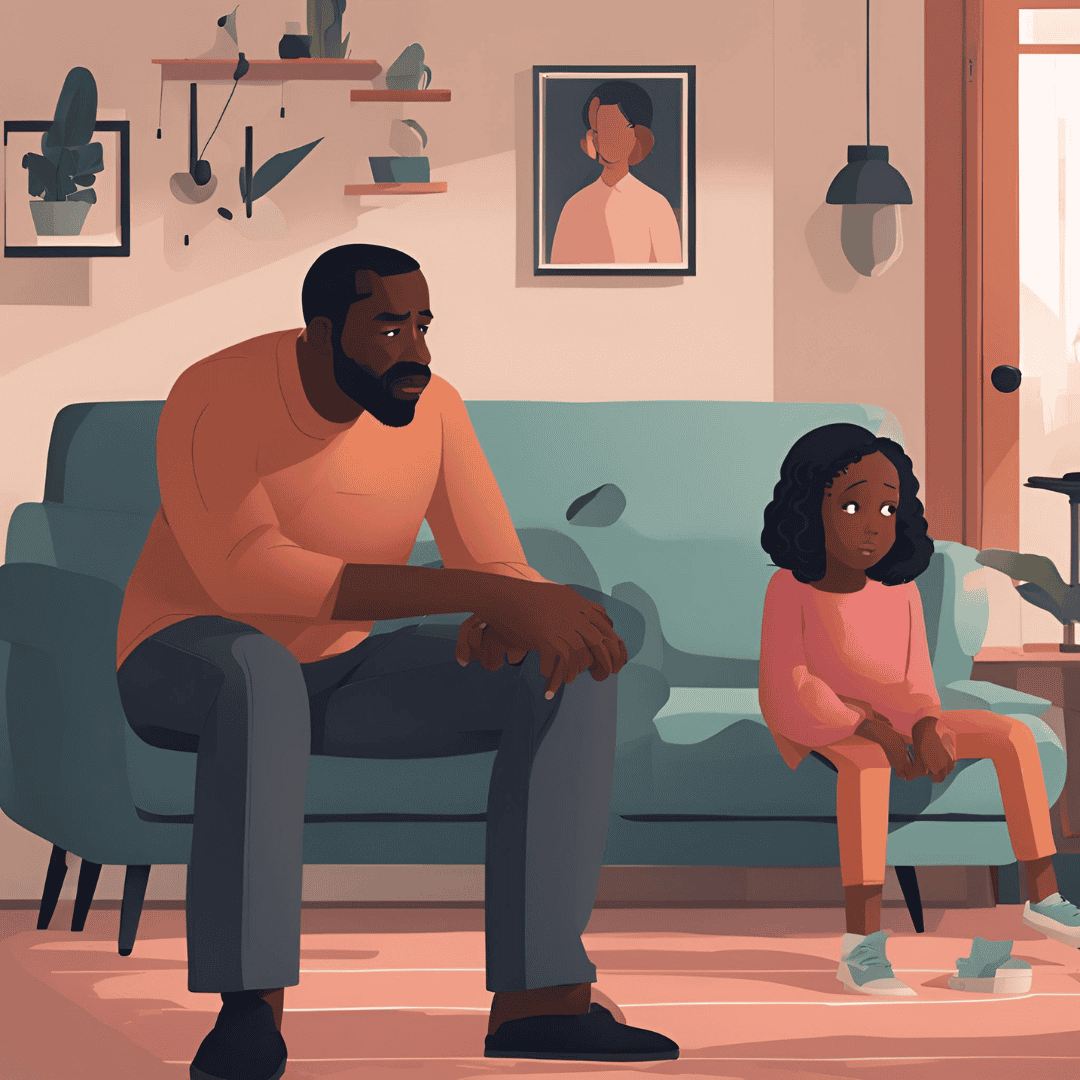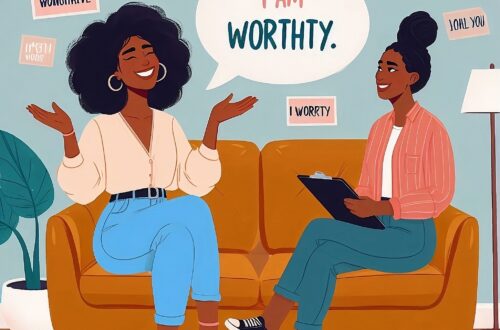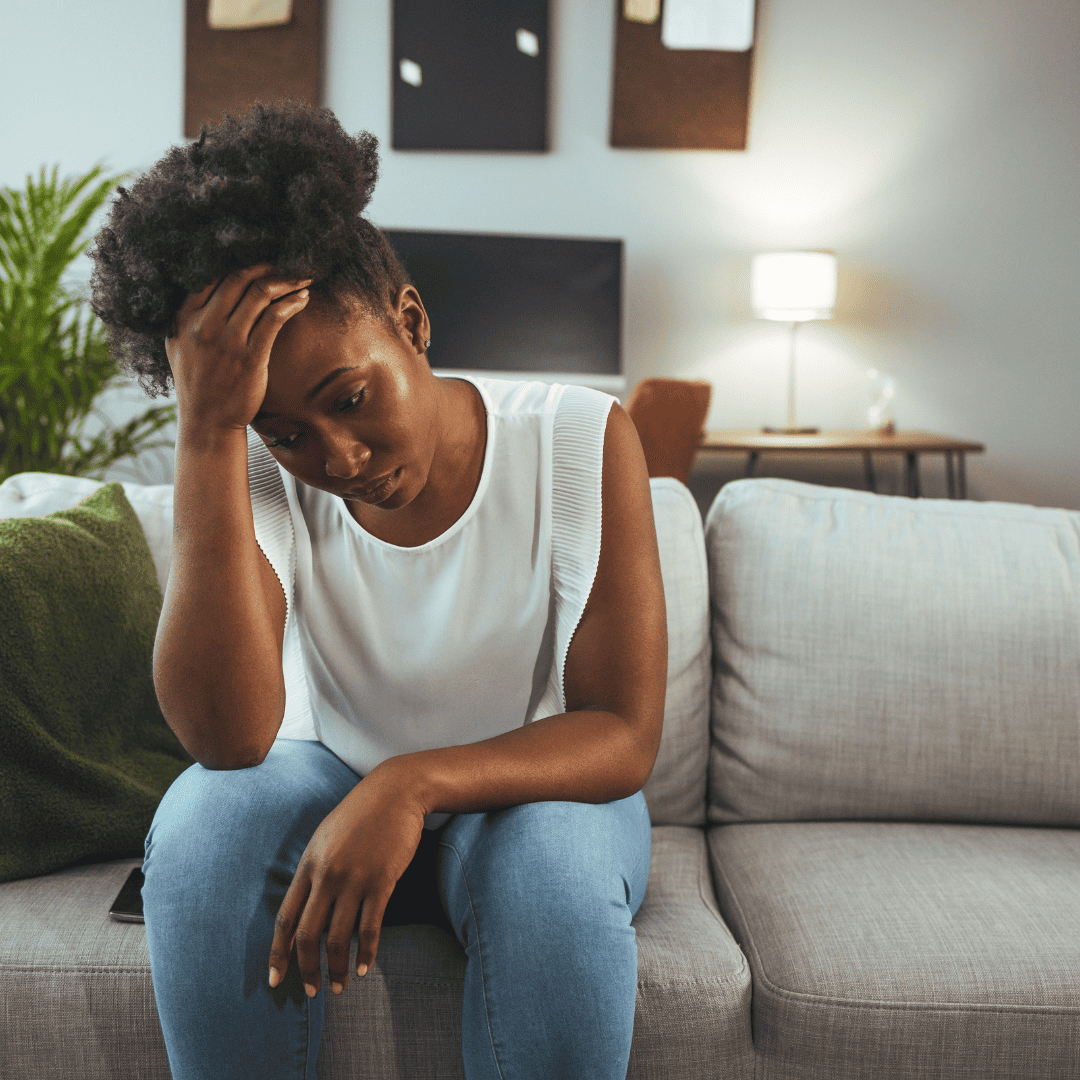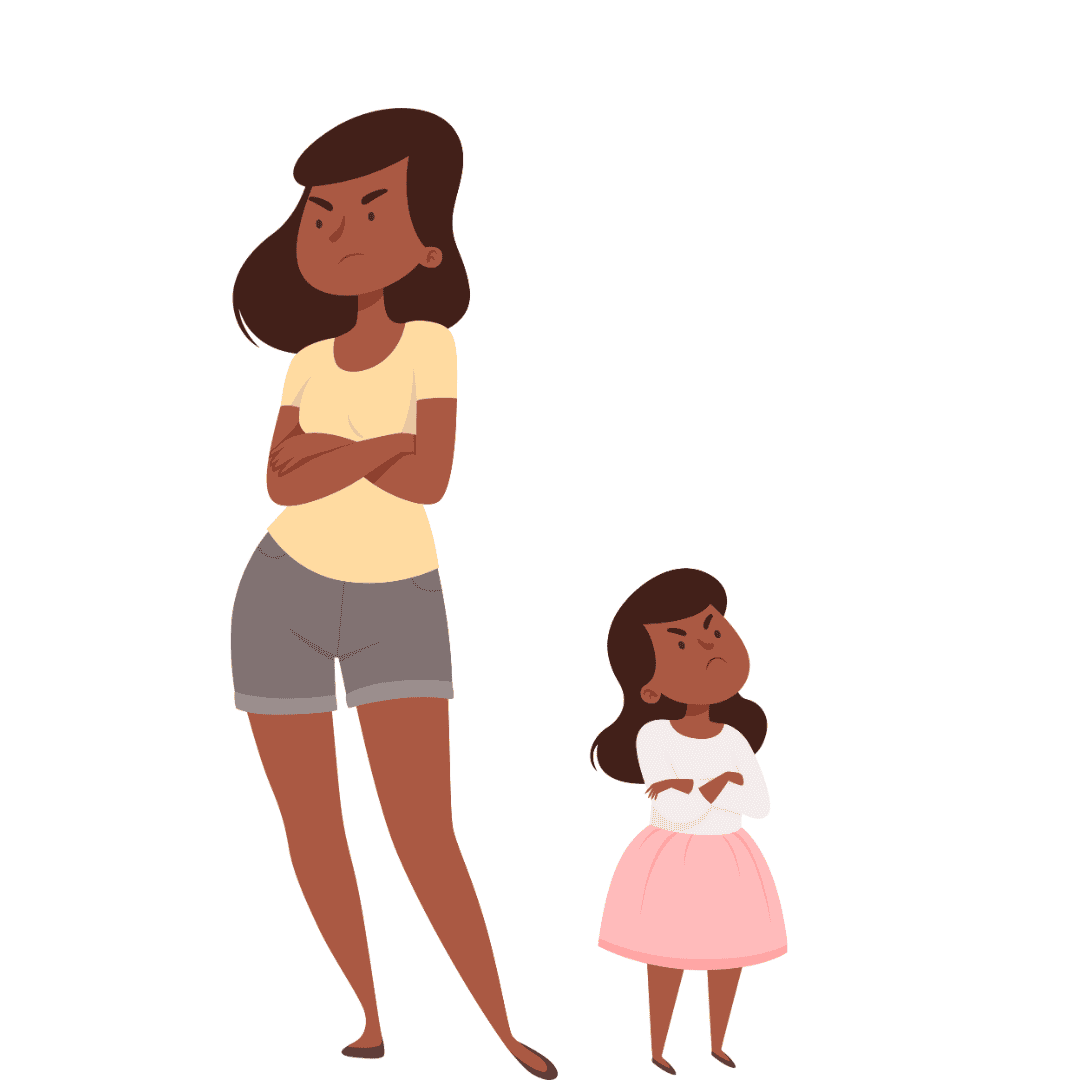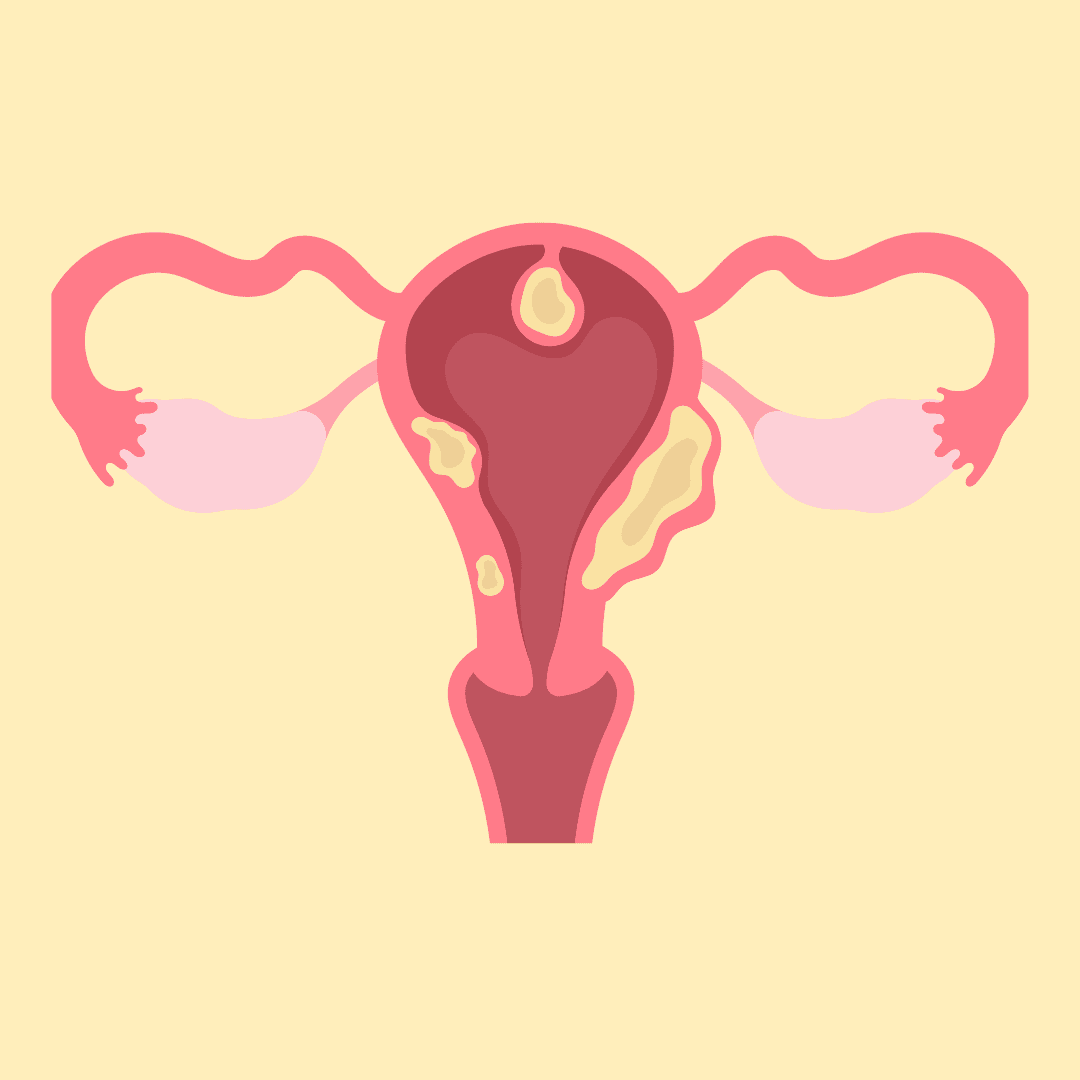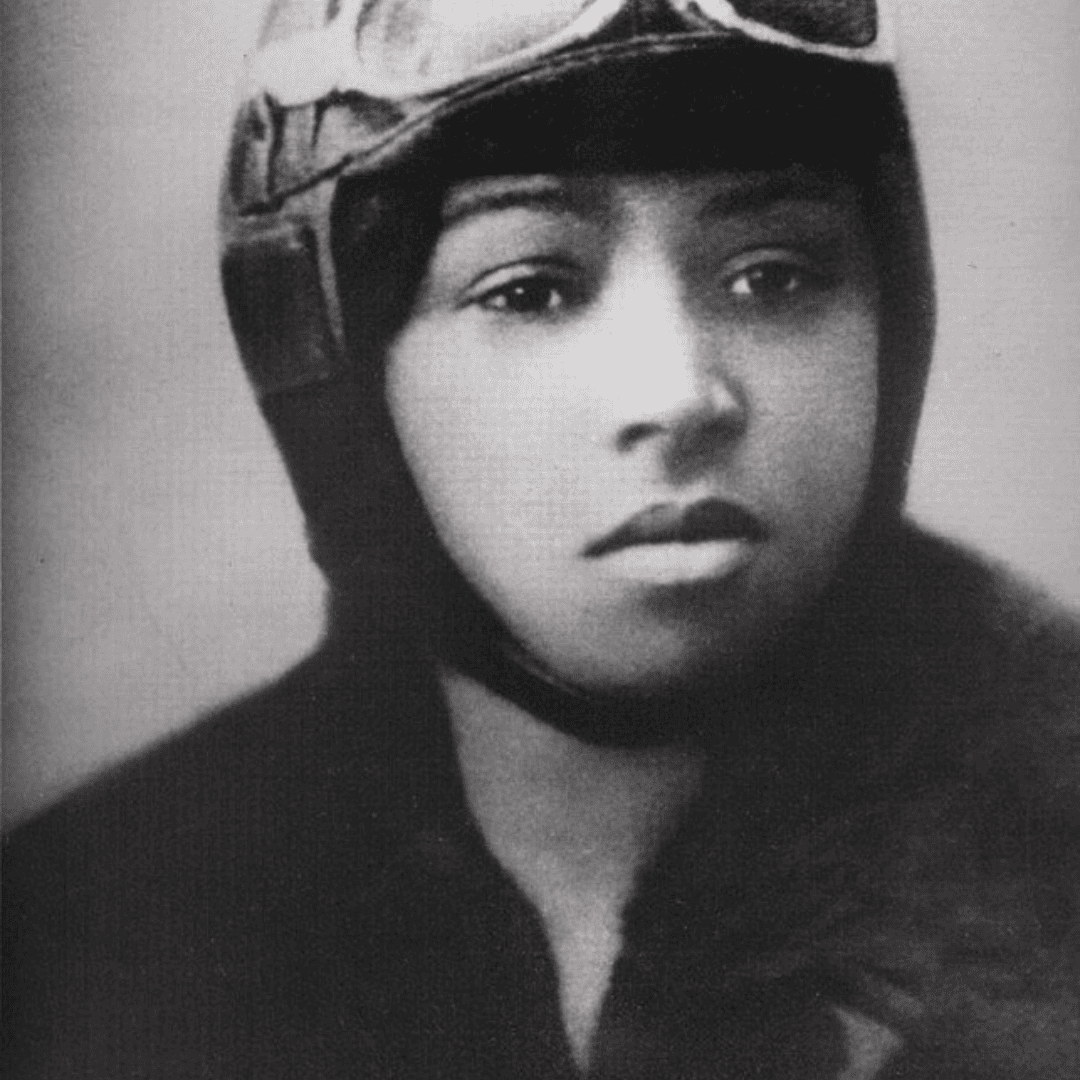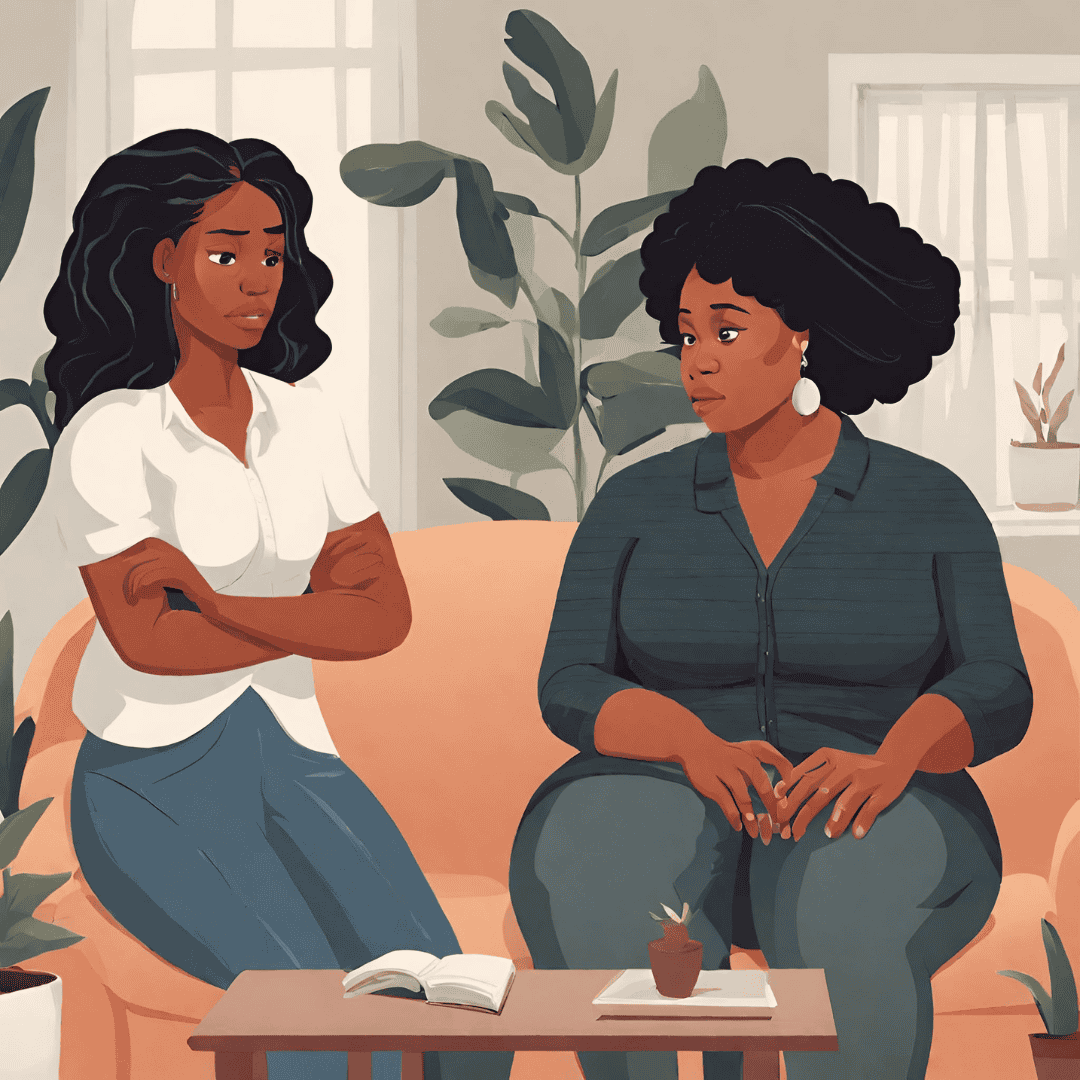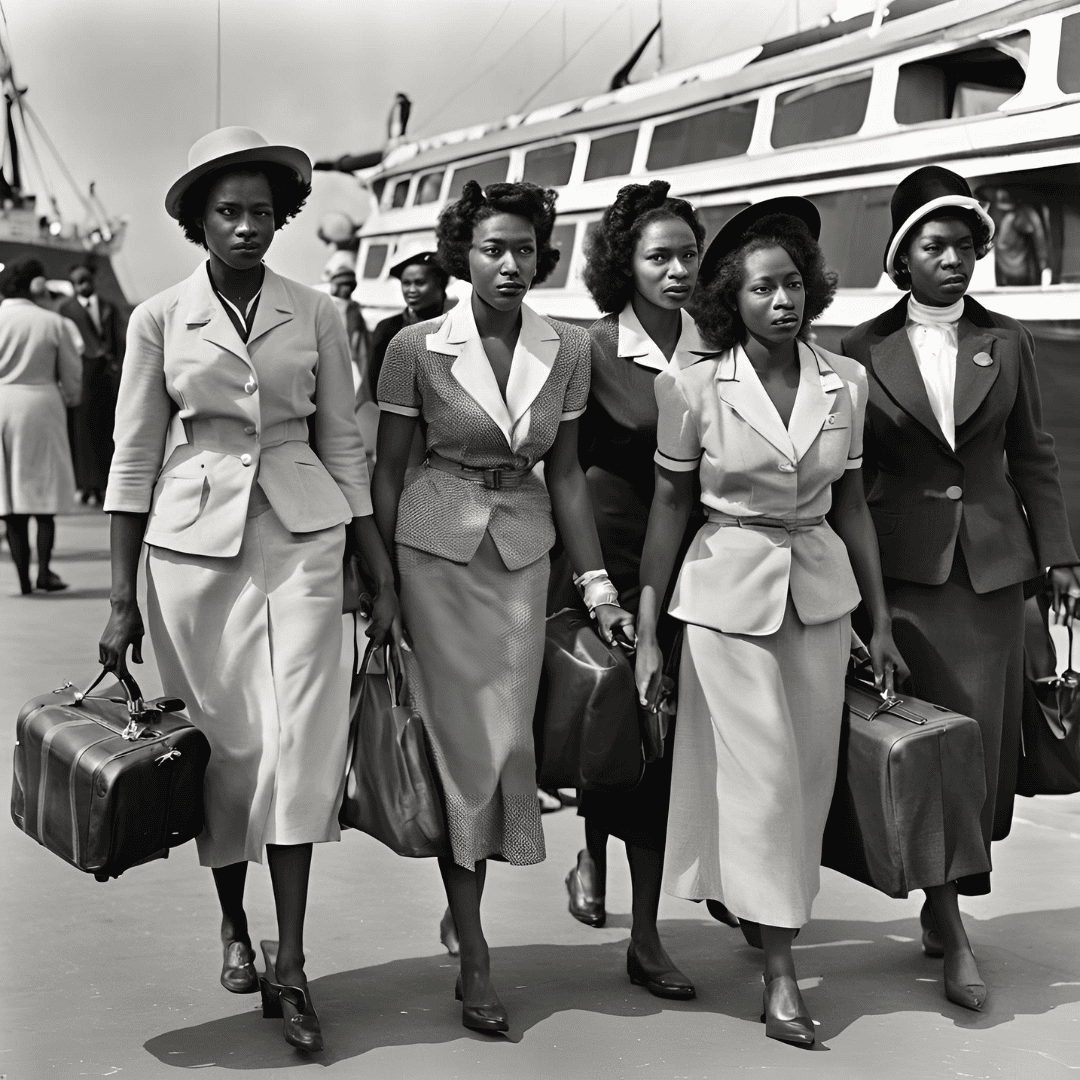-
3 Overlooked Black Women of the British Black Panthers
Disclaimer: This blog contains content that is written about British black Panthers for educational purposes. The information provided is accurate to the best of my knowledge and there may be omissions and errors. I am not a qualified teacher or historian and should not be seen as educational advice. I reserve the right to run and manage my blog and the focus of this blog may change at any time.
These 3 influential black women are known for their community activism, organising and championing black people’s rights especially black women’s rights.

An illustration of 2 black women posing by the bookshelf. Illustration from AI on Canva. Who is Altheia Jones-LeCointe?
A physician and a research scientist from Trinidad and Tobago, she was considered the leader of the British black Panthers, her experience in politics started when she was younger. Her parents were active in politics and were part of the People’s National Movement.
She moved to Britain to study chemistry at University College London and was shocked about the hostile treatment and racism she received as a black woman in the 1960s and sought groups to join that reflected her experiences.
When the British black Panthers came to support black students at the university, that is when she became more politically active in the university and joined the British Black Panthers.
During the Mangrove Nine trial, she represented and defended herself in the court system and this led to the Mangrove Nine trial being acquitted after a long trial that lasted 55 days.
She became one of the renowned activists in the British black Power movement during the 1960s and 1970s.
Who was the Brixton Black Women’s Group?
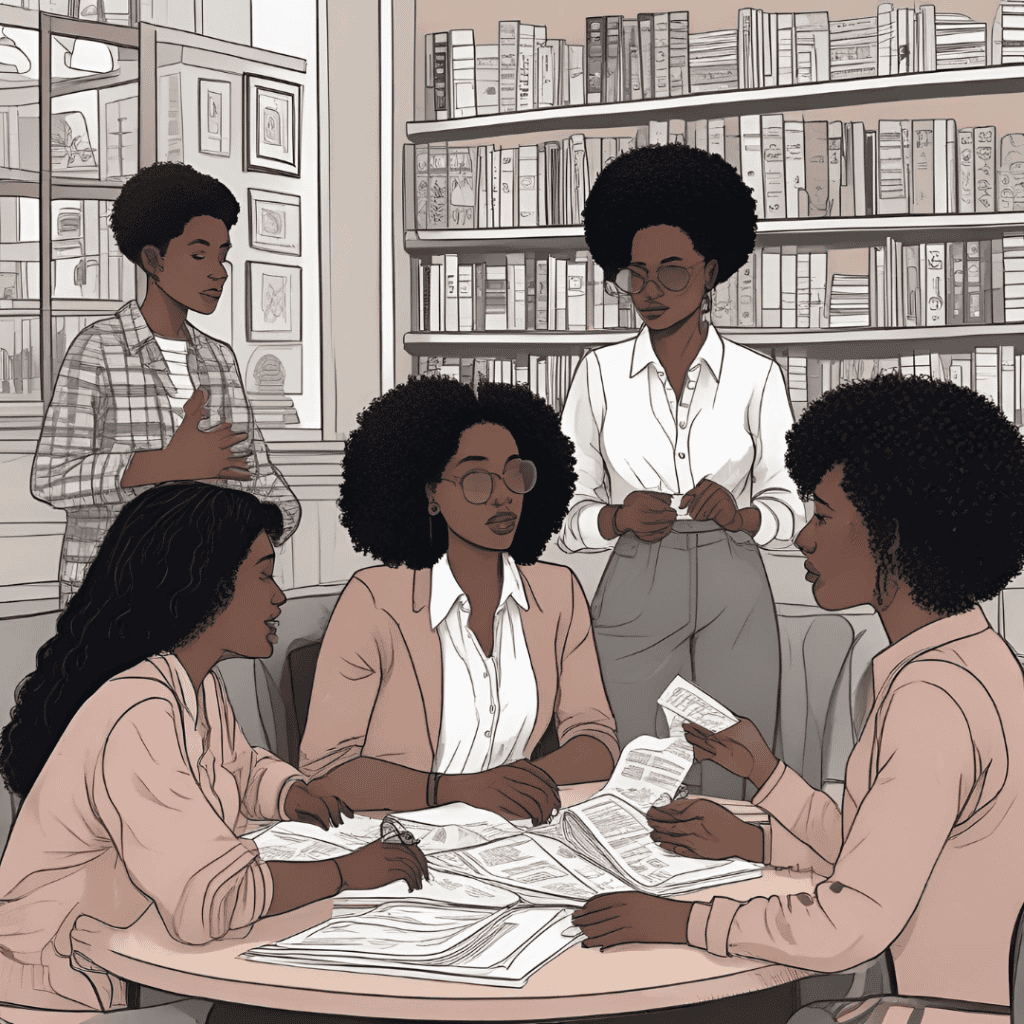
Illustration of black women at a meeting in a bookshop created using AI on Canva. After the British Black Panthers split as an organisation, Beverley Bryan, Olive Morris and Liz Obi left to create their organisation called Brixton Black Women’s Group.
This was established as a result of sexism and a lack of interest in empowering black women. They created a safe space which was necessary to focus on addressing issues concerning black women.
How did they help black women?
The organisation offered advice and support to black women in the local community, similar to the British black Panthers but this time, they were more focused on the experiences of black women.
Who is Olive Morris?
Olive Morris was an influential community activist, feminist and leader, who became active in politics when she witnessed a Nigerian diplomat being assaulted by police officers because he had a Mercedes. When she rushed to help him, she ended up being assaulted by policemen and fined.
She defended the rights of black people who squatted in empty buildings. Squatting was a common practice that happened as a result of racist housing practices. This meant that some black families were put in poor accommodation that wasn’t fit for the standard of living.
What happened after she left the British black panthers?
After she left the Panthers, she focused on building the Brixton Black Women’s Group and moved to Manchester and studied Economics and Social science degree at the University of Manchester.
While she was studying she created the Manchester Black Women’s Cooperative. She travelled globally, writing and lecturing on topics based on women’s and black empowerment and racism.
How did she pass away?
In her final years, she collaborated with another activist and writer Stella Dadzie and created OWAAD(Organisation of Women of African and Asian Descent). While she was in Spain she started to feel ill and she discovered that she developed blood cancer. Olive Morris passed away on the 12th July 1979. from a form of cancer aged 27.
Who is Beverley Bryan?
A retired professor, writer, activist and teacher, Bryan moved from Jamaica to England and attended the same school as the late activist, close friend and founder Olive Morris.
In her youth, she joined the West Indian Centre and then joined a black arts workshop and travelled to different youth clubs across the country. They used poetry and spoken word to challenge negative racial stereotypes.
After completing her teaching training at Keele University, she moved to Brixton and joined the British Black Panthers. She used education to solve issues in the black community helped educate children at the supplementary schools and taught Maths, English and History.
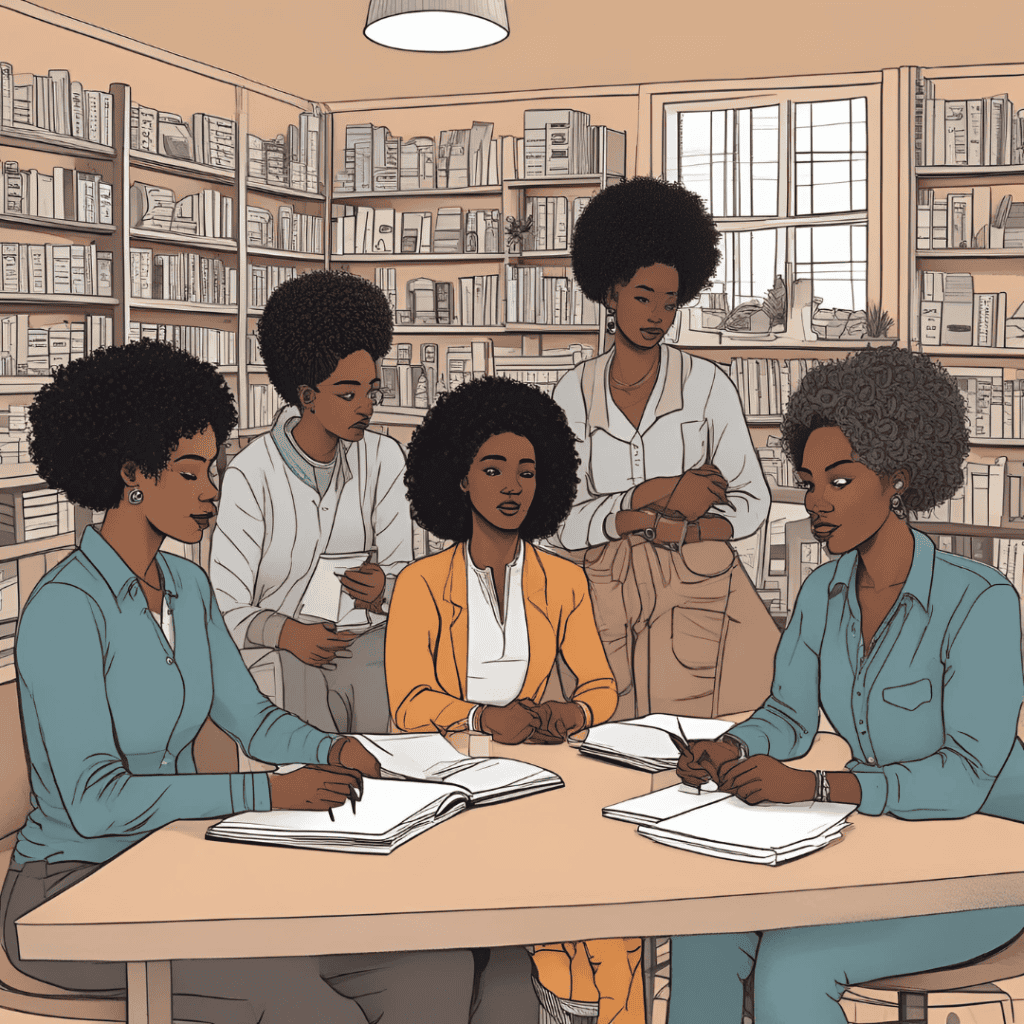
An illustration created by AI by Afro Lit Stories on Canva. Final Thoughts
I hope you enjoyed reading the article about the 3 powerful women and how influential they are in the black community as educators, activists and community organisers who were determined to make changes in the black community using education and knowledge of self.
If you are intrigued by black British history and want to know more about black women’s contribution then share this article with another black woman who enjoys reading this topic. And don’t forget to leave a comment and let me hear your thoughts below.
Related Articles
-
No Longer Forgotten: The British Black Panthers Story
Disclaimer: This article is written for educational purposes about British black Panthers and may include the opinions of the writer. It is accurate to the best of my knowledge but there may be omissions in this blog post. I reserve the right to change how I run and manage my blog and may change focus at any time.

A group of black people protested in the streets. Illustration from Canva. A Brief Historical Background
Before the Windrush generation arrived in June 1948, black communities were dealing with racial discrimination and racism(even though we are still dealing with racism) from members of the white society.
In 1919, there were many attacks against black people that took place in London, Manchester, Hull and South Shields.
Before the racial discrimination law was passed in 1965, there was a legal yet racist practice called the colour bar which made it extremely difficult for black people to seek and apply for jobs and accommodation.
Who were the British Black Panthers?
A Nigerian playwright called Obi Egbuna created the British black Panthers in Notting Hill, West London in 1968. Influenced by the activists of the Black Panther Party in the USA, they adopted military jackets and black power fists without using any weapons.
The aim was to address police brutality and included the idea of political blackness. The British black panthers adopted the concept of political blackness because all non-white people are affected by racism, and they decided that it would be more suitable to refer to everyone as black in the organisation.
Another key difference is that there were Asian activists involved with the British black Panthers from the beginning such as writers and activists Farrukh Dhondy and Mala Sen. Unfortunately, the presence of the founder was cut short when he was arrested for allegedly threatening the police.
Who were the members of the organisation?
The organisation grew to 3,000 people but the main activists in the organisation were Altheia Jones-LeCointe, a Trinidadian PhD student who was considered the leader of the organisation, and Eddie LeCointe, an activist and later Altheia Jones’ husband.
And the late Olive Morris, an influential community activist and leader who joined the organisation when she was younger and defended squatter’s rights.
Other renowned members included Liz Obi, an activist and feminist who was a close friend of Olive Morris. Beverley Bryan, a retired lecturer, activist and writer who used to teach children at the Saturday schools and Darcus Howe, the late Trinidadian writer and activist who was involved in the Black Power movement abroad and in the UK.
Barbara Beese, an activist who was involved in the protest and in the Mangrove Nine Trial and Neil Kenlock, a photographer who captured the important events.

An illustration of black people protesting on the streets. Illustration by Canva. What was the Mangrove Nine trial?
The Mangrove Nine was a restaurant that was established by Frank Crichlow in 1968 in Notting Hill, a Caribbean restaurant that became a haven for the black community. The restaurant attracted famous people such as the late Jimi Hendrix, Nina Simone, and Diana Ross.
However, the restaurant was known to receive harassment from the police because they thought that a successful black-owned business must have been funded by criminal activities.
Mr Crichlow sought help from the British black Panthers and on the 9th August 1970, they led a protest with 150 people which turned violent and resulted in a trial. The trial lasted for 55 days and was successful because it exposed the racism in the police force.
It was nine activists that were arrested including Altheia Jones-LeCointe, Darcus Howe, Frank Critchlow, Godfrey Millet, Rothwell Kentish, Rhodan Gordon, Barbara Beese, Rupert Boyce and Anthony Innis.
What did the British black panthers achieve?
They achieved many things such as creating supplementary schools also known as Saturday Schools and creating their newspaper called Freedom News. These schools were instrumental in making sure that black children were taught their history and instilled a sense of black pride and self-confidence.
They had branches throughout England that were located in cities such as Manchester, Bristol and Nottingham. They established the Black Power Youth League which Olive Morris and Linton Kwesi Johnson were members of when they joined the organisation.
Why did the organisation end?
The British black Panthers split in 1973 and the members decided to embark on other projects. Each activist contributed their skills and experience which made the British black Panthers successful and necessary in the black community.
According to an article by Refinery29, Altheia Jones-LeCointe mentioned that she made sure that women had their voices heard in the organisation that there were discussions based on gender roles and that there was a need for a group dedicated to black women.
The split of the organisation included sexism which the women experienced and led Olive Morris, Liz Obi and Beverly Bryan to start the Brixton Black Women’s group.
Focus on Black Male Leadership
One thing that needs to be discussed more openly is the focus on black men during the civil rights and black power movements. This is an important conversation to have because we know that black women have contributed a lot to these movements and they are not always recognised.
Black women have contributed to different black power movements and have been involved in progressing the black community and there isn’t enough recognition to acknowledge the black women activists and educators.
On the other hand, when we do learn about the black power movement in the USA, the recognition isn’t given to black women compared to black men.
The issue with Political blackness
It’s problematic to refer to everyone as black when they were not born as a black person. Yes, Asian people also suffer from racism, however the idea of referring to them as black isn’t helpful. It’s like giving away your race to people who are not black and psychologically it doesn’t make any sense.
Final Thoughts
I hope you enjoy reading about the British black panthers as much as I enjoyed researching them. It’s a shame that you don’t hear about them during school or in college.
Don’t forget to share this post and comment below about your thoughts regarding the British Black Panthers, political blackness, the focus on the men and not enough focus on black women in these black power movements and sexism.
Related Articles
-
How Anaemia Affects Fibroids: The Hidden Connection
Disclaimer: This article regarding anaemia is for educational purposes in this lifestyle blog and may include the blogger’s opinions. The information written is accurate and to the best of my knowledge, however, some information may be omitted. I am not a qualified medical professional so this should not be seen as advice. I reserve the right to change how I run and manage this blog and may change focus at any time.

Photo of iron-deficiency anaemia from Hailshadow from Getty Images Signature on Canva. Isn’t anaemia annoying? Imagine feeling sleepy at different times of the day and it keeps happening. The one thing that shocked me was that fibroids can develop as a result of being diagnosed with anaemia.

A tired black woman in a blazer is sitting in front of her laptop with headphones. Photo from dimaberlinphotos from Canva. What is anaemia?
Anaemia is a medical condition that affects your health and ultimately your energy. According to the NHS, “anaemia is when your body doesn’t have enough red blood cells to carry oxygen around your body.”
What are the symptoms of anaemia?
According to BUPA, they outlined several symptoms such as “feeling tired, weak, faint and dizzy.”Living with anaemia meant that I would feel tired a lot and I cannot stress how not having enough iron can affect your mood and overall wellness.
What causes anaemia?
As mentioned by Flo, the period tracker app, there are a few causes that can lead to anaemia such as:
- Blood loss through period- if a woman has heavy periods then a lot of the blood would be lost during menstruation which could affect the iron in the body leading to low energy.
- Not eating enough foods high in iron- another cause can be if someone isn’t eating enough iron this could pro into anaemia since the red blood cells are not getting iron.

Hungry black lady holding an empty plate and yawning from Nwezi Confidence’s Images from Canva. When was the first time I had anaemia?
My first experience with the condition happened when I was in college. I started my A-Levels in 2011 and I remember sitting on the bus feeling tired. And I started taking iron tablets hoping that it would never return.
So, what happened during lockdown?
Fast forward to 2020, COVID-19 happened and in March 2020, we went into lockdown I started to feel fatigued again. Several months later, I studied for a postgraduate degree and I went to the GP, took blood tests and discovered that I was anaemic.
Several months later, I started a postgraduate degree in 2020 and I went to the GP, took the blood tests and discovered that I had anaemia.
In April 2021, I notified the tutor in my course that I had an appointment and wouldn’t be able to attend the virtual seminar. I went to the hospital and went for an uncomfortable scan. Then, I got dressed and I went back to the waiting room.
The doctor entered the room and explained the results and she revealed that I have fibroids, I felt shocked and disappointed to hear the news and I wasn’t expecting it to lead to a shocking diagnosis.
I left the hospital feeling disheartened and decided to research fibroids when I got back to the student accommodation, only to find out that the causes may have contributed to developing fibroids.
Tips on managing your diet with anaemia and fibroids?
1. The first tip is to eat more green vegetables started to eat more green vegetables such as green beans, Broccoli and Kale. Growing up in a Congolese household my diet was meat, fish and plant-based foods. When I started university, I started to eat more plant-based foods and started to reduce dairy foods and meat intake.
2. The second tip is switching from dairy milk to plant-based milk. At university, I started to drink more plant-based milk such as Oat and Soya milk. I like soya and oat milk because they are delicious and it has been a good investment in reducing dairy.
3. The third tip is eating more potassium, I have been eating more potassium in my 20s. An article by Livestrong highlighted some of the foods that I enjoy eating that are high in potassium and good for your health. These are:
- Bananas
- Lentils
- Yoghurt
- Avocado
- Yoghurt
4. My fourth tip is taking vitamin D supplements, I have been taking vitamin D supplements as part of my medication. According to the British Heart Foundation,
“one in six adults have low levels of vitamin D.”
– british heart foundationTaking vitamin D has been a major part of my life since vitamin D manages my energy levels and eating foods that are rich in vitamin D is good for your bones and teeth.
5. The 5th tip that I want to add is eating more iron and looking for foods that are in fibre such as meat and pulses.
6. My final tip is exercise, we know that doing workouts that suit your needs and make you feel confident in yourself.
Final Thoughts
I hope you enjoyed reading this short blog post based on my experiences and how I deal with anaemia. I hope the tips that I offered were helpful and that they gave you some ideas on what you could do to manage your anaemia. The important thing is to do what works best for you and focus on your health.
Don’t forget to comment below and let me hear your thoughts about managing anaemia and fibroids. Share this article with other black women who would like to know more tips about managing anaemia. As always, I appreciate feedback on my writing.
-
The Life and Legacy of Bessie Coleman
Disclaimer: This article is based on Bessie Coleman for educational purposes. The information about this topic is true and accurate to the best of my knowledge, but there may be omissions. I am not a qualified historian or teacher and should remind readers to read at their own risk. I reserve the right to change how I run and manage this blog and may change focus at any time.
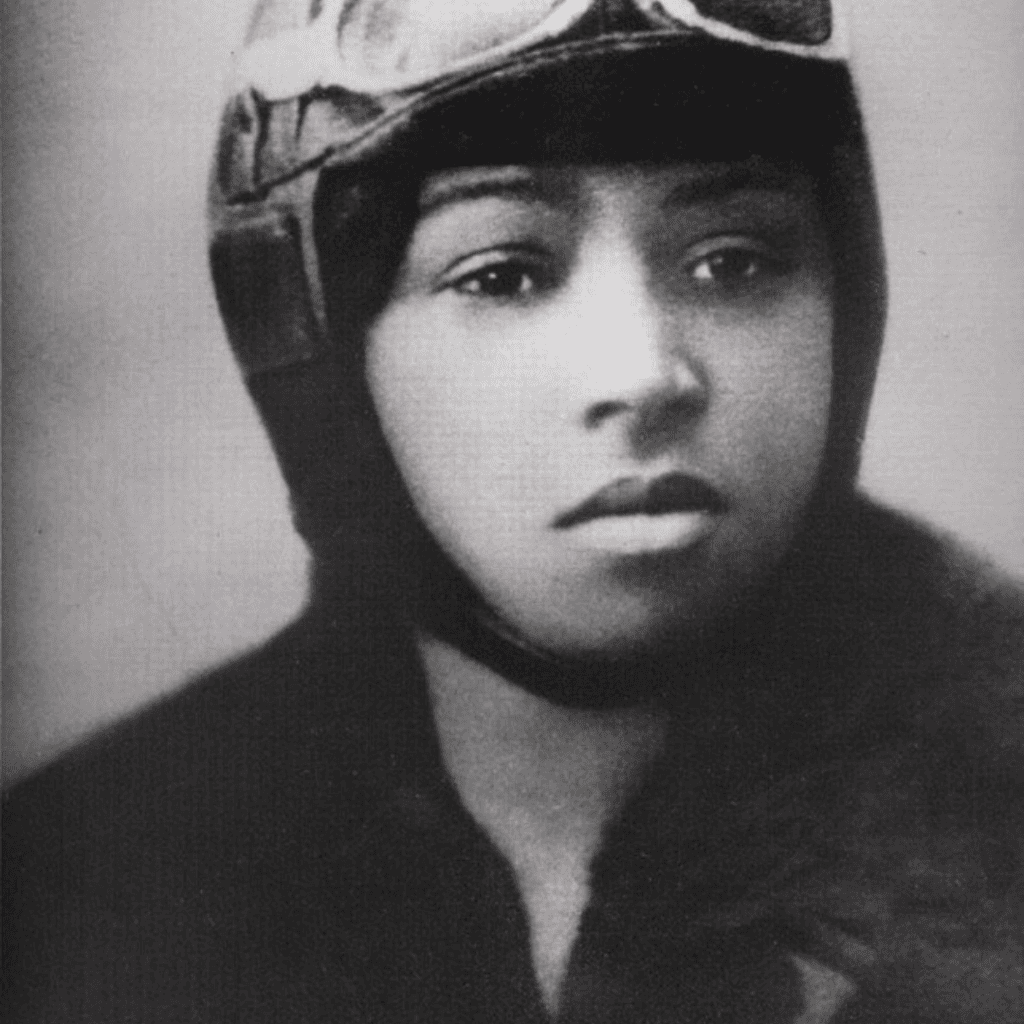
Bessie Coleman wears her pilot uniform. A photo from the Everett Collection in Canva. This is an inspirational story featuring Bessie Coleman, a black Native American pilot who broke the racial and gender barriers by achieving her goal of becoming the first black female pilot in 1921 in France. It has been 102 years since she received her licence and influenced black people to kickstart their careers in aviation.
Who is Bessie Coleman?
Bessie Coleman was born and raised in Texas on the 26th January, 1892 and grew up in a large family. Coleman was a bright student who excelled in Maths and helped her mother pick cotton since her parents were sharecroppers and washed laundry to earn income.
She studied at the Oklahoma Colored Agricultural and Normal University (now Langston) but she had to leave because of financial difficulties.
What did Bessie Coleman do for a living?
When she was 23, she moved to Chicago to live with her older brother and secured a job as a manicurist at a barbershop after completing her education at the Burnham School of Beauty Culture.
While she was working, her brother John Coleman came into the barbershop, who wasn’t fully sober teased her saying that French women were more liberated and were allowed to fly aeroplanes and he was right. It was in the barbershop that she decided to become a pilot.
How did she become a renowned pilot?
While living in Chicago, she made connections and befriended prominent black entrepreneurs such as Richard Abbott, a businessman and publisher of the Chicago Defender newspaper. Also, Jesse Binga, an entrepreneur who owned a bank and both businessmen played an essential role in ensuring she achieved her goal.
She applied for aviation schools in the USA and got rejected because of her race and gender, however, that didn’t stop her from learning how to fly.
It was Mr.Abbott who suggested that she should apply for a flight school in France since they were “less sexist and racist” and were more accepting of teaching and training French women to become pilots.
In the meantime, she applied for schools in France, switched jobs to become the manager of a restaurant to save money and took French lessons that were paid for by Jesse Binga.
A flight school called the Caudron Brothers School of Aviation in Le Crotoy in France accepted her application and she left in November 1920. She spent 7 months training as a pilot and was awarded the international licence by the Federation Aero Nautique Internationale in June 1921.
The air is the only place free from prejudices
-Bessie ColemanWhat happened after she became a pilot?
When she returned to America, she became a celebrity in the black community and became a stunt pilot. She returned to Europe to gain more experience and visited countries such as France, Netherlands and Germany before returning to America.
It was during this time that she became known as Queen Bess and became famous for barnstorming such as looping the loops and parachuting off the plane. Also, she toured the country and gave lectures to the black community.
How did she die?
She was rehearsing for an airshow in Florida and took her last flight with a mechanic called William Wills who was flying the Aeroplane.
According to the Independent, she was preparing to parachute off the plane when a wrench got caught in the engine and she was thrown out of the plane and didn’t survive the fall.
The mechanic didn’t survive the crash either as he lost control of the plane. She was only 34 years old and her ambition was to open a flight school so that black people could take flight lessons.
Over 5,000 people attended her funeral as they paid their last respects to the pioneering pilot. It was the journalist and activist Ida B. Wells who delivered her eulogy at the funeral.
Remembering Bessie Coleman
In 1929, William J. Powell, a black pilot started a flight school and called it Bessie Coleman Aviators Club in her honour. In 1977, black women started an aviation organisation called Bessie Coleman Aviators. It is important to not let race get in the way of your ambition.
I hope you enjoyed reading this article because I read a book about her and even though I have heard of her, I was inspired by her story and that she was passionate and determined to achieve her goals.
Let me know what you think of the blog post in the comments below, I appreciate the feedback and want to make sure that the content is intriguing. Don’t forget to share this blog post with other black women who are fascinated by black history and thank you for reading.
Reference
eBook: Bessie Coleman- First Female African-American and Native American Pilot by Cathleen Small.
-
The Unseen Battle: Imposter Syndrome’s Grip On Black Women
Disclaimer: This information is to be read for educational purposes. I am not a mental health professional or a psychologist specialising in imposter syndrome.
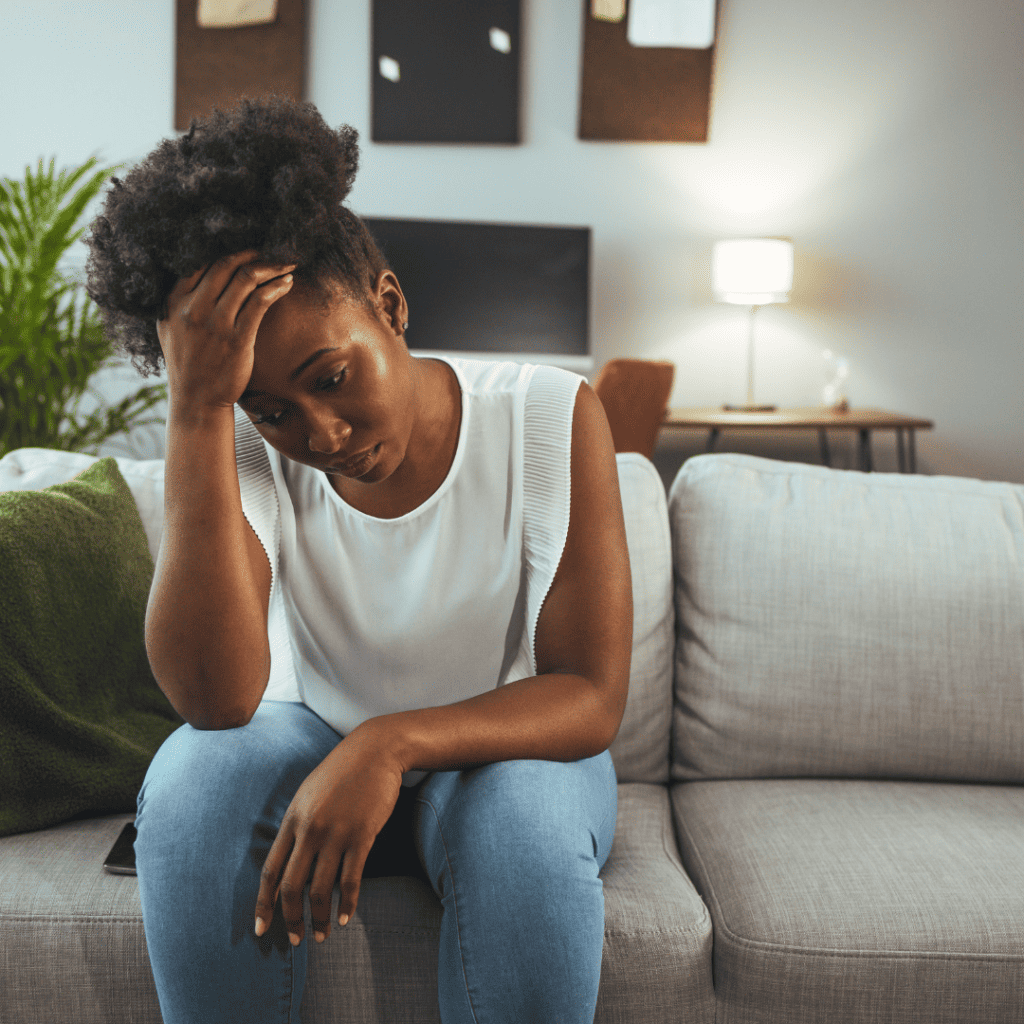
A photo of a black woman wearing a white top with looking sad with her hand on her forehead. Photo by Dragan991 of Getty Images from Canva. What is Imposter Syndrome
According to Psych Central, imposter syndrome is when you are doubting yourself and your skills because you feel inadequate and not confident in your capabilities. Psychologists Dr Imes and Dr Clance coined the term imposter syndrome in 1978 based on a study that involved mostly white women from middle to upper-class backgrounds.
These women held senior positions in companies and included medical and college students from different universities, and what they discovered was that these participants had self-doubt and felt inadequate and thought that they tricked people into thinking that they were capable of their roles.
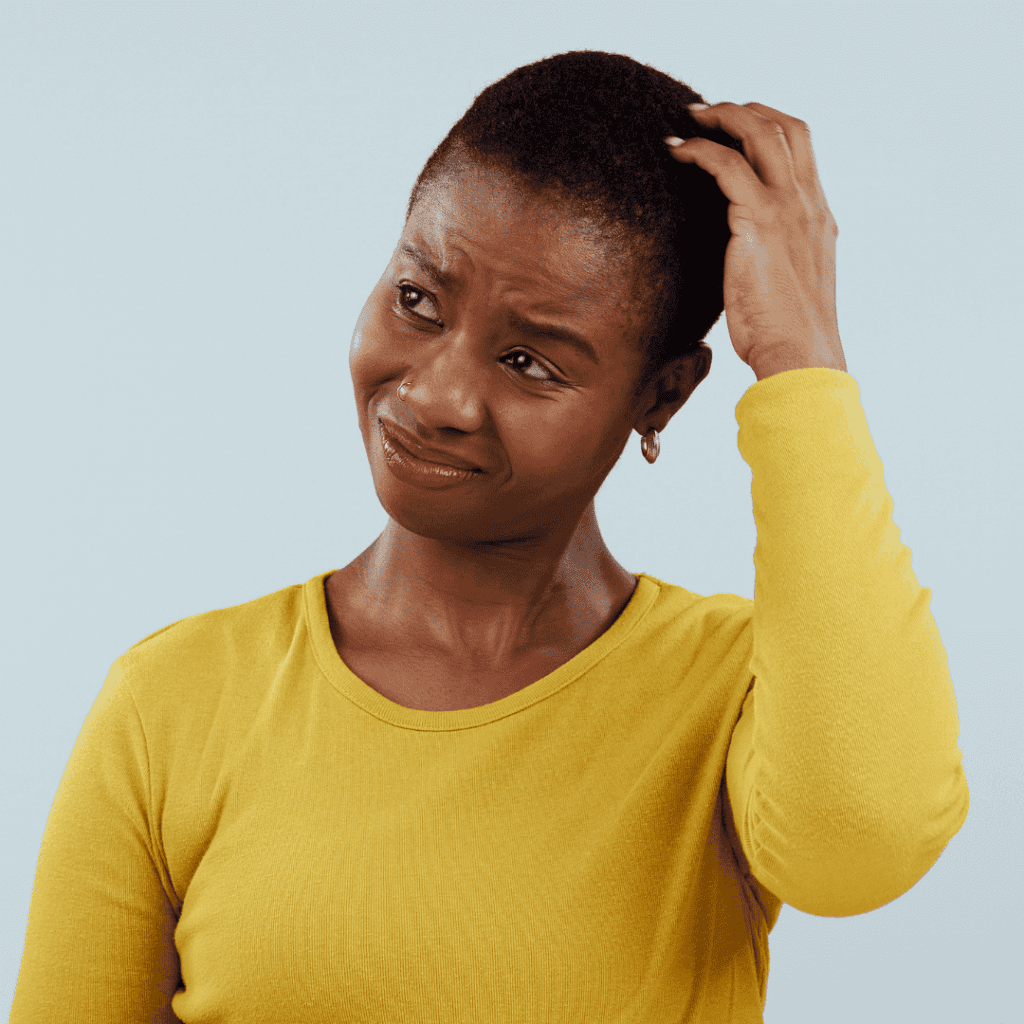
A photo of a black woman with shaved hair looking worried with self-doubt. What are the causes?
Family and Upbringing
Parents can put pressure on their children to achieve high grades especially if they are from an African household where education is highly important. While education is essential, placing a lot of pressure on children can affect mental health which isn’t always considered.
And this can manifest into anxiety and fear as a result of setting high standards. An example of this is when I failed two subjects which were sociology and English Language when I studied for my A-levels at Bury College.
On top of that, I remember going to college with my Mum and discussing the next steps with English teachers. I ended up dropping Sociology and keeping English because I preferred English Language.
As soon as I got home, I had a headache and I remember my Dad telling me to aim for high grades. I took that speech and started to put pressure on myself which manifested into becoming a perfectionist at university.
Personality
There are certain traits that some people have that make them a perfectionist. This could be linked towards people who identify themselves as introverts. This trait can lead to stress due to overworking and overpreparing content, which can lead to tiredness.

Photo of a self-note Don’t Doubt Yourself by Marian Marganingsih from Getty Images on Canva. How does Self-Doubt relate to feeling like an imposter?
Self-doubt is when someone doubts themselves and their skills. It involves doubting yourself based on negative experiences, situations and different aspects of life.
Also, self-doubt is the main factor behind the feeling of imposter syndrome because you don’t have the confidence to carry out tasks that can help you progress to your next goal.
Statistics of Imposter Syndrome
A study in the Independent revealed that around 4,000 people have experienced this type of self-doubt. 53% of women have experienced imposter syndrome and 72% of women are more likely to have imposter experience at work.
In comparison, 63% of men are also at a higher risk of having imposter syndrome at work. Although this research shows women are more likely to experience imposter syndrome at work. Unfortunately, it doesn’t mention the percentage of black women who also have this form of self-doubt because there are reasons such as microaggressions and being underrepresented at work which can lead to feeling inadequate.
What’s it really like to have imposter syndrome?
The negative thoughts are influenced by an inner critic (it’s like having someone in your head telling you that you can’t do something, spreading doubt into your mind that leads to low confidence). Here are the reasons why imposter syndrome is detrimental:
- It can hinder your growth as an individual, as a content creator
- And this could even lead to past, negative experiences that have already happened that can affect this feeling of incompetence.
- Makes you feel frustrated even though you are aware of your skills and achievements a strong inner critic is reminding you why shouldn’t be doing these things.
- You will overthink things and think about the things that could go wrong.
What are limiting beliefs?

Photo of a handwriting with a cup of coffee. Photo by Marekuliasz from Getty Images on Canva. Some people who have imposter syndrome experience different emotions such as fear, guilt and frustration that can reinforce their limiting beliefs. According to the Happier Human blog, limiting beliefs is a “state of mind or thoughts that you believe are true. “
Here are some examples that I went through during my long hiatus of blogging:
- I’m not a good blogger because I don’t have experience creating content for businesses.
- My writing isn’t good enough or I don’t have any experience in writing so I am going to stop writing.
- I don’t look good on camera and have no idea what to say so I will not record myself.
- I don’t have enough of a large audience so how can I possibly continue blogging?
- My content isn’t good enough so maybe I should stop blogging altogether.
- I wrote 9 blog posts when I first started blogging and eventually, I started becoming demotivated and started to doubt myself. I stopped blogging and didn’t return until this year.
Limiting beliefs relates to imposter syndrome because it is a story based on an experience that keeps you in your comfort zone. This shows how powerful imposter syndrome can be and can get out of control if we don’t tackle it from the beginning.
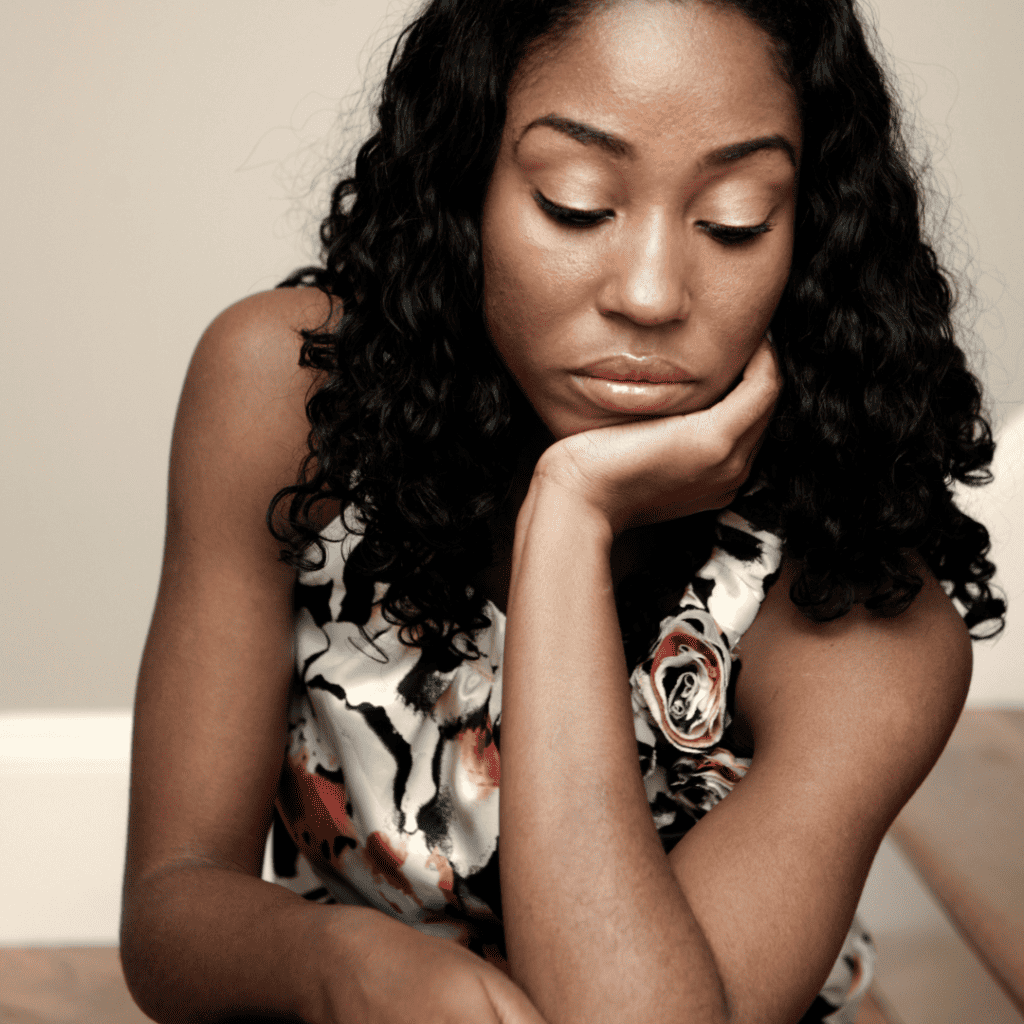
black woman looking sad with her hand under her chin. Photo by Jessica photos from Getty Images Signature on Canva. The Effects of Imposter Syndrome
The consequences can manifest in traits such as perfectionism, procrastination on tasks, self-doubt and even anxiety.
Feeling like an imposter syndrome is not a mental illness but it can take a toll on you emotionally. Doubting yourself causes you to overthink things and you end up thinking about things that could go wrong instead of doing it.
On top of that, you end up feeling guilty because you are not doing what you are supposed to be doing and it becomes a cycle that is hard to break. And it will take different strategies to overcome it.
When in reality you realise that once you have completed the tasks that were worrying you, you realise that it wasn’t such a big deal.
Perfectionism
Another effect of imposter syndrome is perfectionism. Perfectionism can be detrimental because it doesn’t allow us to think about embracing failures and making errors. It is rooted in always trying to make your work look perfect.
As mentioned by Dr Orbe-Austin, author of Own Your Greatness and a psychologist perfectionism is related to self-doubt because you are always reaching for expectations that are not realistic, not realising that being perfect hurts your creativity, and it will leave you feeling stuck and not go any further.
There is nothing wrong with producing high-quality work, but when someone is a perfectionist it can be exhausting and it involves focusing your energy on setting unrealistic expectations. A perfectionist will aim for their best and when they don’t reach for the goals, they start taking it out on themselves.

An image of an inspirational quote by Marekuliasz from Canva. Signs you may have imposter syndrome
An article by Teachable outlined signs that show a person may be experiencing imposter syndrome. Here are some of the common signs:
- Fear of not living up to people’s expectations
- Setting unrealistic expectations
- Feeling inadequate and don’t believe that you have the skills or experience to create content.
- Sabotaging your success as a result of self-doubt
- Perfectionism
- Low self-confidence
Types of imposters
According to Valerie Young, a renowned expert in imposter syndrome and the author of The Secrets Thoughts of Successful Women: Why Capable People Suffer from It and How to Thrive in Spite of It. In her research, she identified 5 types of imposters :
The Perfectionist
This person tends to want their work to be perfect, sets unrealistic goals and punishes themselves when they can’t meet their goals or have failed to meet one of the goals. Instead of acknowledging the hard work, they take it out on themselves.
The Soloist
According to Simply Psychology, soloists enjoy working independently and believe they can do things by themselves. They believe that asking for help is a sign of weakness and even though they know they can ask for help, they don’t want people to think that they can’t do things by themselves.
Superhero/heroine
As mentioned by the tilt, this person feels adequate when juggling multiple responsibilities and if they can’t manage various roles then they may start to feel like they are a failure because they are not keeping up with being the superperson and feel like they have tricked people into thinking they are the superhero or heroine.
Expert
This person feels adequate by how much and what they know and need to have the necessary skills and qualifications such as applying for jobs. If they don’t know enough about a topic they can start doubting themselves.
Natural genius
This person tends to learn things at a quicker speed and “they tend to put little effort into the work they are doing” and if it takes longer for them to learn or understand a topic, this can make them feel like a failure.
Final Thoughts
There are many ways to overcome imposter syndrome, and another article will discuss how these strategies can help black women who acknowledge their imposter syndrome and want to overcome it.
It starts with self-compassion, knowing your self-worth, and learning from your upbringing because we know that many things have contributed to our self-doubt that can come from upbringing.
It took me a long time to know that confidence is a powerful belief that can change your life significantly. I know that slowly the belief in myself will become second nature.
Thank you for reading my article I hope this will help black women who have imposter syndrome and recognise that everyone can doubt themselves, it becomes a problem when imposter syndrome affects your mental health.
If you enjoyed reading this article, don’t forget to comment and share. If you have any content ideas that can elevate and educate unapologetic black women, let me know in the comments.
-
Understanding Fibroids: What Black Women Need to Know
Disclaimer: I am not a qualified health professional and this is strictly based on experience and this will be used to educate readers. Read with caution.
This is a silent condition because I have noticed that we don’t talk about fibroids in the black community, it is not something that is spoken widely like many things such as mental health.
It is something that needs more attention, particularly for black women. I’m hoping this topic can spark a conversation amongst black women who have this condition.
Also, I was diagnosed with fibroids 2 years ago and it is fairly small (I hope it stays that way until I get rid of them because they shouldn’t be living on my uterus, it’s disrespectful).
What are Fibroids?
According to the NHS, “fibroids are non-cancerous lumps which can grow in various sizes on or around the uterus and it varies from woman to woman.” Some women may experience stronger symptoms of the condition compared to women who may have fibroids but they don’t have any symptoms.

A black woman sitting on the bed with her hands on her stomach feeling stomach cramps. Photo by Prostock studio. Racial Disparities in Health
As mentioned by the Huffington Post, it has been estimated that “25% of black women are more likely to be diagnosed with the condition than 6% of white women. “
Fortunately, this condition is not cancerous, however, black women are more prone to developing fibroids than other races of women.
A study by the University College of London argued that “racism and discrimination contributed the most to the health disparities of melanated people.”
Furthermore, there has been plenty of evidence that has been documented when it comes to the lack of belief that black women require attention.
Similarly, a recent study by the Black Women’s Health Imperative has shown that “80% of black women and 70% of white women could develop fibroids by the time they are 50.” These numbers are of great significance because they indicate the seriousness of fibroids and their need for greater attention.
An example would be the case of gynaecologist Dr Sims who experimented on enslaved black women without anaesthesia during slavery in the USA. This affects the way black women are perceived in the healthcare industry.
What causes Fibroids?
The causes of fibroids remain a mystery, however, there have been various studies that have mentioned different possible causes that may explain why the condition affects black women at a higher rate.
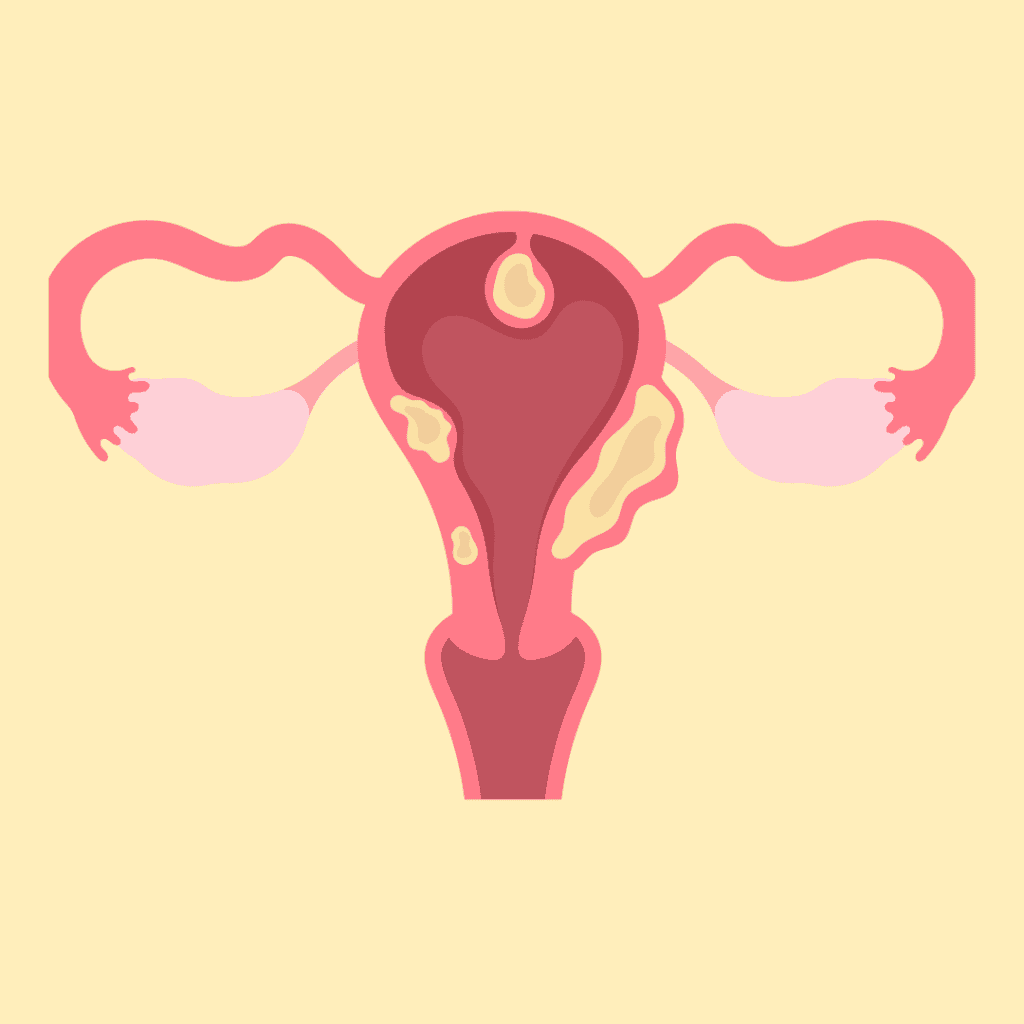
A graphic by Pepermpron of the female anatomy showing the uterus with uterine fibroids. Early Menstruation
According to a study by the National Library of Medicine, if a woman experiences her period early, it may increase the likelihood of developing fibroids. This is interesting because if a woman received her periods early and ended up getting diagnosed with fibroids as an adult.
Race
Similarly, the British Journal of Obstetrics and Gynaecology stated that the likelihood of black women “being diagnosed is 2 to 3 times higher” and this is a tremendous figure which shows that race plays a significant role and that black women need to focus more on our reproductive health.
Demographic of fibroids
Another study mentioned family history and how this may have a bigger impact since it affects our reproductive system and our overall health. Family history implies that fibroids may be genetic- if someone in your family has fibroids then this may mean it could be inherited.
Furthermore, this is significant because this factor focuses on genetics and this may make us question whether or not developing fibroids is inherited.
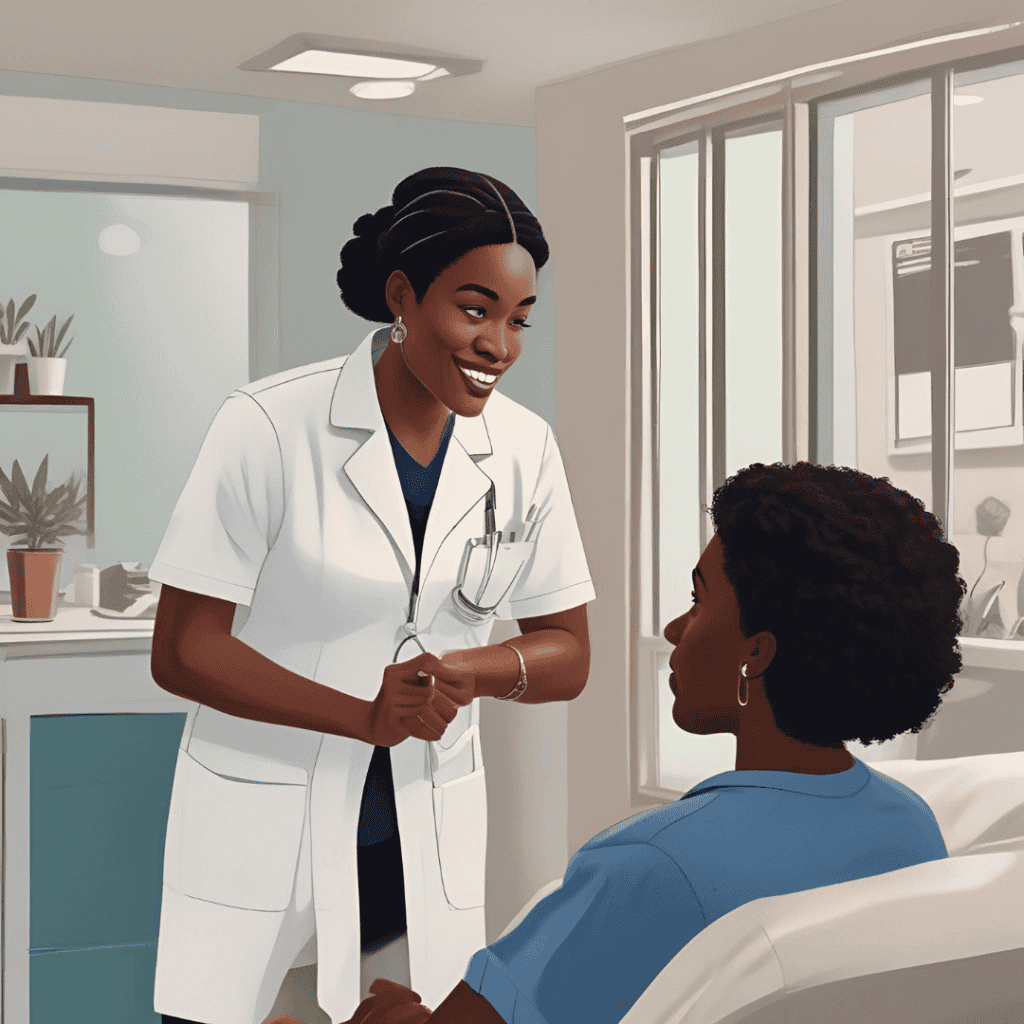
An illustration made by AI on Canva of a black doctor talking to a black patient in a hospital. What are the signs of the condition?
- Heavy periods
- Lower back pain
- Fatigue
- A frequent need to pee
Summary
I hope that this issue will be discussed more widely because this isn’t normal. It is one of the things that is going to make you wonder why some of us have non-cancerous tumours, because as black women we deal with enough things.
I hope you enjoyed reading this article and hopefully, this article helped you have a better understanding of the condition. Share this post with other black women, comment below, and let me know your thoughts and experiences about fibroids.
Afro Lit Stories

Healing through storytelling, elevating black millenial women, one mindset shift at a time

